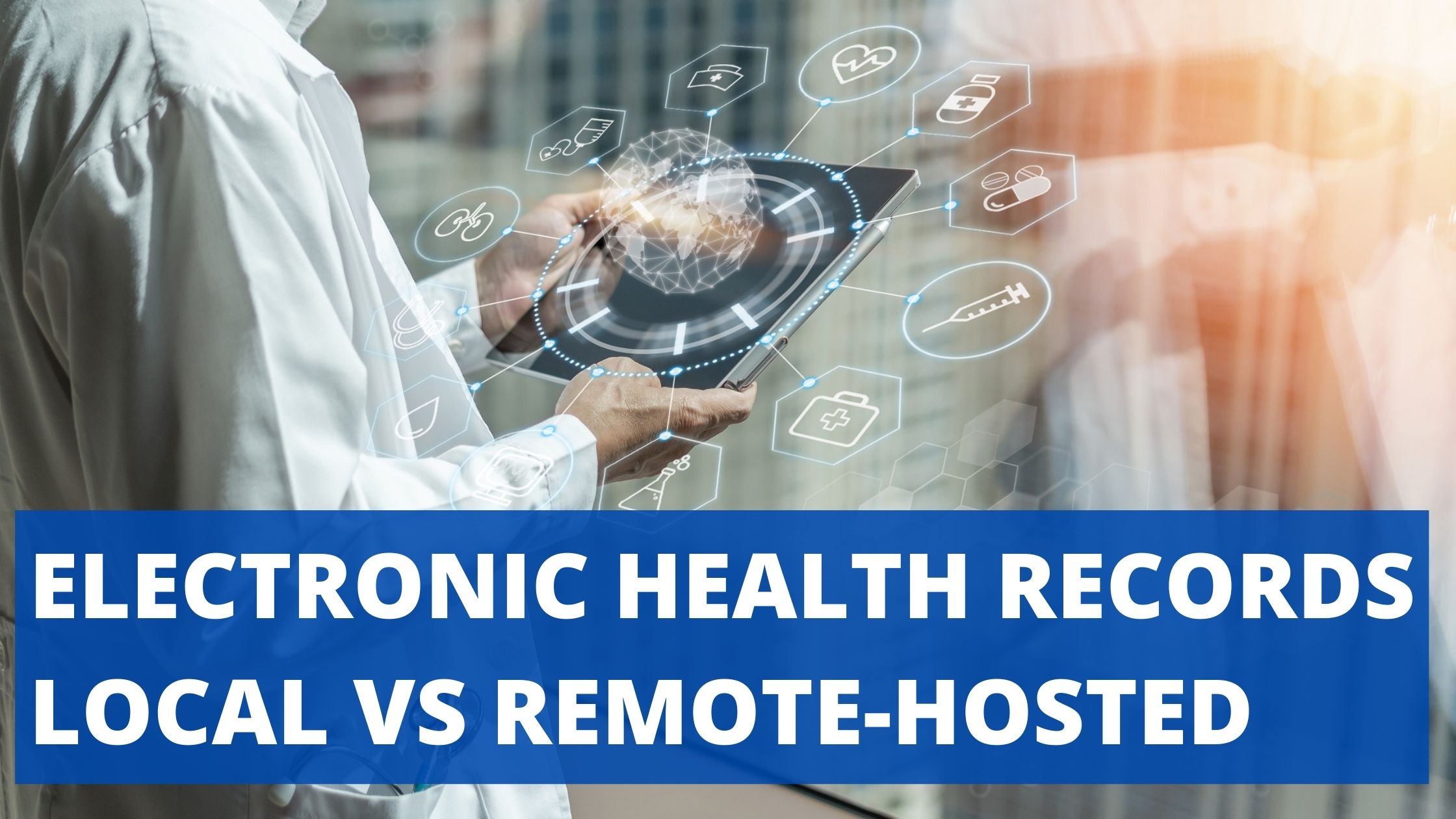Electronic Health Records: Local EHR vs. Remote-Hosted EHR
Electronic Health Records, or EHRs, are the mainstay of how health organizations store patient data and perform clinical services. When deciding on an EHR, the organization can consider whether they want to go with a local hosted EHR that stays on the premises or they can decide to go with a remote-hosted EHR that stays within the cloud. Though cloud EHRs have further distinguishing types, today we’ll just be reviewing the different considerations between local versus all remote-hosted EHRs.
Reliability and Support/Maintenance Costs
Local
Local EHRs are only as reliable as the resources in place for them. If an organization decides to use a local EHR, there needs to be heavy discussions on what are the exact requirements necessary to run a reliable local EHR. This includes number of servers, storage area networks (SAN), server room size, network infrastructure, etc., and can also include discussions of who will be responsible for providing support should the local EHR servers go down. Having a local EHR, however, would allow the organization to be able to estimate their costs accurately because they are the ones who will handle the equipment purchases and employee pay.
Remote-Hosted
When an EHR is remote-hosted, the vendor typically has server farms dedicated to the remote-hosting services and has their own team of engineers, technicians, etc. to maintain the network infrastructure. Because of this, remote-hosted systems are arguably more reliable because they have a higher amount of uptime and dedicated workers to troubleshoot issues if any arise. On the flip side, when there’s an issue or a downtime, the organization typically can’t really do anything because it’s all on the vendor to find the issue and fix the problem since the remote-hosting servers are controlled by the vendor (or by a third-party owner if they are a private server EHR).
Access and Usage
Local
A local EHR would be great for an organization or a clinic that has limited geographical area of practice. There would be less of a need for the provider and staff to access the EHR outside of that one main facility. The limitation would be if there’s multiple clinics or a larger organization that would have staff from one facility need to access the profiles of patients from the sister facility.
Remote-Hosted
Because of the nature of being remote-hosted, multiple facilities within that organization can access the EHR at any given time without a limitation on the patient records (unless there are rules in place for that specifically). This allows larger organizations to have one shared database for the patient records, streamlining access and precision of health records.
Security
Local
When the EHR is hosted on local servers, access to the servers would remain in the local network. Security is always crucial to protect PHI from being accessible outside the network, but having it on the local network allows more control by the organization since there can be encryption methods to shield it from the public facing networks.
Remote-Hosted
In terms of remote-hosted EHRs, they live on remote servers so the organization would need to connect via the internet to the remote-hosted EHRs to access patient data. If not done correctly, the traffic being exchanged between the organization and the remote-hosted EHRs could be compromised. To have a safe remote-hosted EHR, additional security measures need to be accounted for, such as tunneling through a VPN or creating a separate line between the organization’s network and the remote-hosted EHR. The convenience of having a remote-hosted EHR would mean the sacrifice of having additional security measures and costs to ensure the data remains confidential and private.




